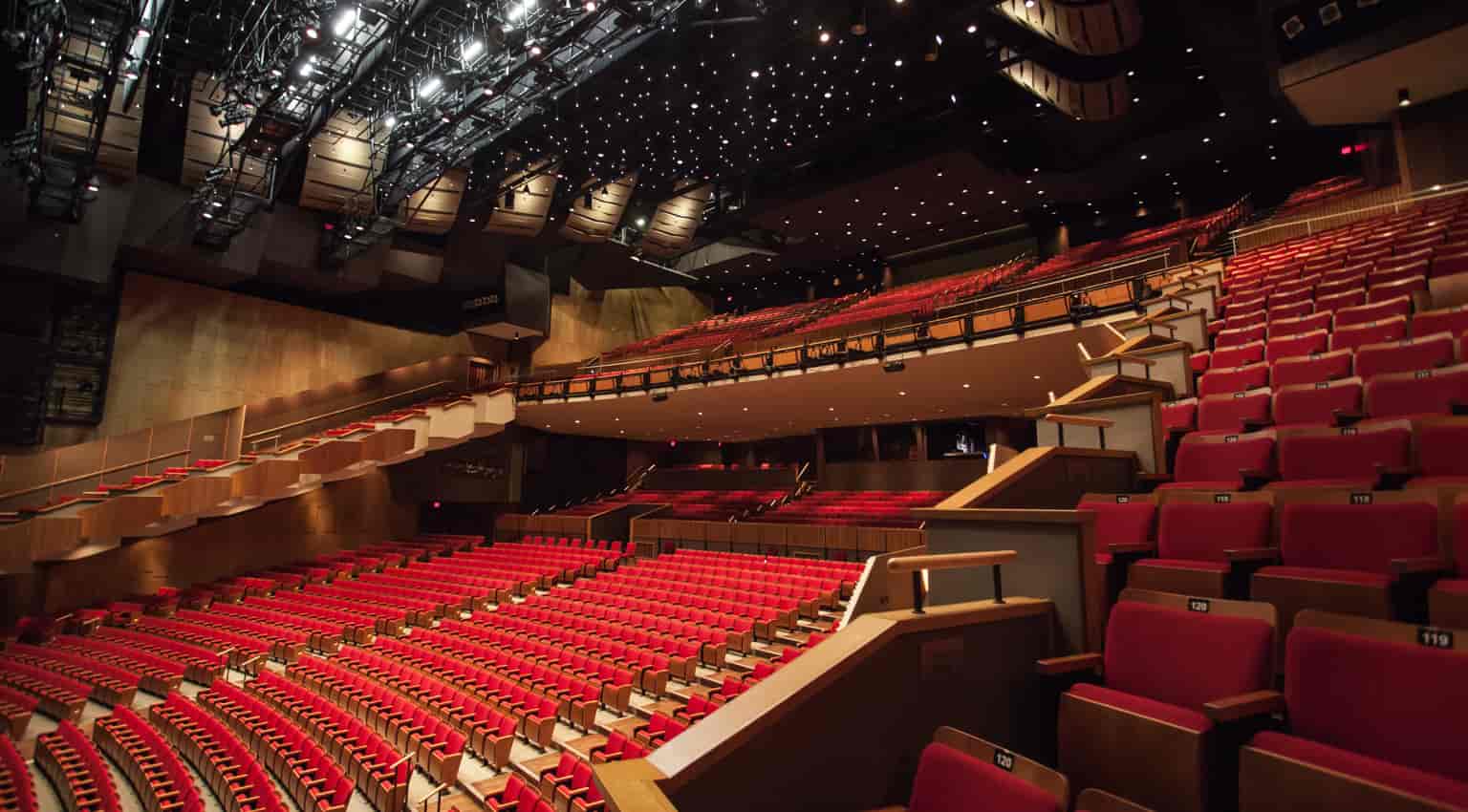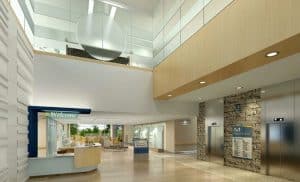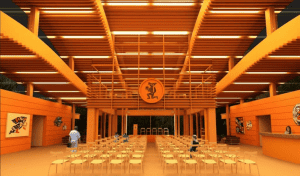Ever wondered what acoustic engineering consultants are typically asked to do when they’re… consulted? Maybe you have an acoustics-related problem of your own but aren’t sure what questions to ask? First of all, please don’t hesitate to contact us and express your concerns, because at BAP Acoustics, we believe there are no wrong questions, especially not when they elicit sound advice. Secondly, we hear certain types of questions so frequently we feel they warrant their own blog post, so please read on. You may see your own question—or one relevant to it—addressed below.
In compiling and reviewing these questions, we realized that much—although not all—of our work entails solving problems as opposed to preventing them. Budgetary constraints, environmental consciousness, and heritage building preservation arise among the reasons people often choose to retrofit rather than build new structures. While we always present the most practical and cost-efficient remedial options available, these solutions can be far more expensive than a strata council, building manager, or homeowner might anticipate. Whether you’re designing, planning, building, or striving to make do with a less than ideal acoustic space, we hope you find useful information in the questions and answers that follow.
1) My company’s new office space has turned out to be disruptively noisy in the open-plan areas where most people work. And even between enclosed offices, there’s a lack of speech privacy. Can you help?
Yes, we can. In past cases similar to yours, we’ve come in after staff has left for the day. Simulating office noise in problematic areas allows us to assess and/or measure:
current sound insulation levels between offices or other cellular spaces
speech privacy between adjacent offices and circulation space
reverberation in open-plan areas.
We also inspect construction assemblies (a combination of materials or other items that serve a specific function when assembled) and identify acoustical issues that may be evident within space above a T-bar ceiling, as well as at the junctions of office separating walls with exterior walls.
Our measurements generate data, and our inspections inform us, enabling us to determine the remedial steps necessary to mitigate troublesome noise in your workspace.

While our services don’t include assaulting noisy office equipment, we do understand the therapeutic potential inherent in a DIY project of this nature.
2) The City has asked us to submit an acoustic report as part of the Development Permit application for our new residential project. Is this something you do?
Indeed it is. We’ve helped numerous developers submit acoustically compliant permit applications. Our process includes:
- assessing (measuring) the road traffic noise at your proposed development site
- predicting noise level impacts on building facades
- calculating levels of noise transmitted into residential units
- suggesting glazing and exterior wall upgrades to meet CMHC interior noise environment recommendations
- issuing a report for submission to the City.
3) My client recently moved into an apartment unit, unaware that her upstairs neighbour had just installed new flooring. The resulting noise constantly disrupts sleep and compromises her wellbeing to the extent that she needs legal advice. Can you conduct testing and write an expert report for us in the event of litigation or a Civil Resolution Tribunal dispute?
Absolutely. In a case such as your client’s, we can:
- measure the airborne and/or impact sound insulation of the separating floor-ceiling assembly by following the relevant ASTM standard(s)
- document detailed test results
- compare our measured Impact Insulation Class (IIC) and/or Sound Transmission Class (STC) ratings with Building Code recommendations/requirements, as well as compare results with the sound insulation performance that would have existed prior to the neighbour’s flooring change
- issue a report suitable for use in litigation or application to the Civil Resolution Tribunal (CRT)
- provide evidence in court if required.
4) We’ve recently completed a new building for a client who now claims noise levels exceed those specified in contract documentation. Would you be able to measure the levels and advise us how to reduce them to a contractually compliant state?
Yes, we provide both those services. We can measure:
- levels of background noise from HVAC and/or other building systems
- reverberation times in selected spaces
- the sound insulation of partitions separating spaces of concern.
These tests allow us to compare measured performance with contractual requirements, as well as offer informed mitigation advice to bring acoustic performance in line with client expectations.
5) Our team is developing a luxury residential building, and we want to ensure that noise transmission between units is kept to a minimum. Can you help us design suitable separating partition assemblies?
Certainly. We’ve worked with design teams on numerous luxury residential buildings. In addition, we’ve acted, on behalf of condo owners and strata councils, as expert witnesses in warranty claims against developers. We’re aware that Building Code minimum performance requirements seldom meet owners’ expectations, particularly when those owners bought into high-end developments. We’re also cognizant of the need to increase performance when (as is frequently the case) a noise-sensitive room in one unit shares a separating partition with a noise-producing room in an adjacent one. We can recommend partition assemblies built to meet these higher standards.
6) Our apartment building has a fitness studio on the ground floor, and we often hear noise from dropped weights, workout music, and even amplified class instructors. We’re really hoping you can measure such noise and write a report to help us convince the studio to reduce sound levels.
We can help you. We’ve worked with both fitness studios and homeowners to reduce noise transmission from free-weight areas as well as from sound systems. We’ve also acted as expert witnesses in cases where noise from commercial activity adversely impacts homeowners. We’d be happy to come in and:
- measure the noise in your apartment
- document these measurements
- compare our measured levels with published guidance
- issue a report suitable for use in litigation or application to the Civil Resolution Tribunal (CRT).
7) A new road has been built close to our house. The resulting increase in traffic noise in our living room and bedrooms is truly annoying, so we’re looking for someone to measure the noise. Is it possible to compare the new noise level with what used to be the case before the road was opened? And if so, can you write a report we might use in litigation?
Yes, and yes. We have considerable experience in measuring transportation noise from road, rail and aircraft. Once we’ve obtained measurements, we can use them together with existing, future, or past road alignments to simulate outdoor noise propagation and determine impact on existing or future property. In this way, we’ll be able to compare your current noise exposure with pre-road construction levels. We’ve written many expert reports for use in litigation, and we can work with your lawyer to provide the service required.
8) I own a condo suite in downtown Vancouver. There’s an unidentifiable noise in my apartment almost 24/7, very loud. I’ve made complaints and reported to strata, but with no proof, I doubt anything will be done. So, I’d like to approach strata again with a report based on professional testing that determines the source of the noise. I’ll potentially go to court with this issue. Is this something you can help me with?
Yes. We can arrange for a suitable time to:
- measure noise in your apartment
- compare our measured noise levels with criteria recommended in published guidance
- document our measurements
- assess noise levels in a report suitable for use in litigation.
If your building manager can provide access to the rooftop, as well as mechanical and electrical rooms, we’d be able to locate the noise source, and subsequently offer design advice to mitigate troublesome levels.
9) I’m a lifelong hilltop dweller just above the town of Whoville, Suesslandia. I keep to myself and bother no one, yet every December the NOISE gets worse and worse. The insufferable Whos, if you can believe it—the tall and the small—gather in their silly town square and make the most obnoxious ruckus. (They call it “singing”.) My dog Max must be losing his hearing, because he doesn’t seem to mind it. If you can’t help me make these people listen to reason, I fear drastic measures may have to be taken. Sincerely, Mr. I.R. Grynch
Dear Mr. Grynch,
While we’re sorry to hear about your predicament, the Whoville Town Council assures us that residents are compliant with all bylaws and regulations. They suggest that you’re likely conflating “obnoxious ruckus” with “joyful sounds”, and we don’t, generally speaking, mitigate the latter. Quite frankly, we’re also rather concerned about your heart and feel it may benefit from skillful resizing, a procedure offered at Whoville General, we understand. We hope you can reach a mutually satisfying resolution with the townspeople, whom we found very hospitable… They invited us to a roast beast feast! Perhaps we’ll see you there?

Whoville’s tall & small, breaking out the joyful sounds.




